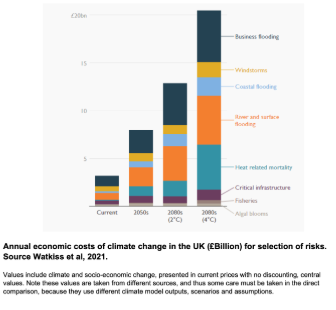From Boom to Bust: The Rise and Fall of China's Real Estate Empire and Its Global Ripple Effect
- Aug 27, 2024
- 5 min read
By Coco Sun

For the past few decades, the boom in the Chinese real estate market has been extremely evident, dominating the colossal Chinese economy and as its combined biggest contributor, accounting for a staggering 25% of the GDP. It has grown to the extent of apartment complexes populated by over 500,000 people, including one in the Guizhou province. The sheer amount of deliberation, designing and development, all of which is fuelled by money and investment, is unfathomable.
However, it is in fact this same injection brought about by speculative investment which has meant that a once profitable, lucrative venture is no more. This property bubble has burst and so too has an unshakeable belief that drove investors for a decade.
Real estate in China has now become a losing investment.
In this article, I will delve into the reasons for the rise and decline of the Chinese property sector and illustrate how the knock-on effects from this will negatively affect the future of the Chinese economy.
In the late 1970s, the People's Republic of China decided to reform the Chinese economy through free-market advancements in industrial production and manufacturing exports. There was an immediate success to this move with China progressing to grow into the second largest economy (by total GDP) in the world, second only to the United States, which helped to bring more than 800 million people out of absolute poverty.
This particular specialisation in manufacturing is notable as property in China accelerated to such an extent, that at its peak, the property present in China was worth around $60 trillion, the biggest asset class in the whole world. The Chinese real estate market from there only saw continued prosperity and the introduction of a significant number of property developers. This change became so globally palpable, with economists highlighting the rate of home ownership in China; they have the highest in the world with 90% of urban households owning their property, compared to the likes of the urban households of the UK at 50%.
One major production company who benefited from the boom in the real estate sector in China was Evergrande, who are crucial to the property sector’s decline.
Evergrande had benefited greatly from the prior value of the real estate market in China, seeing revenues of more than 500 billion yuan (US$70 billion) at their peak in 2018.
Their success stemmed from the 1980s in China, where originally only the ultra-rich minority were able to own property. Evergrande’s focus was to capitalise on the opportunity to provide affordable housing to the mass market and a growing middle class by taking out loans to build low cost, pre-sold flats. This was an extremely calculated approach in regards to China, as the population is a growing market of consumers, with rising incomes buying and selling property.
The scale of the success of Evergrande is significant, but what ultimately led to a once prosperous business declining, and how did they make such an impact?
Evergrande was notorious for having a massive amount of debt, they relied heavily on credit to finance the majority of their projects.
One reason for the enhancement of this debt was due to the Covid-19 pandemic. With many cities on lockdown, housing sales were almost completely frozen, leading to a fall in house prices. This dramatic fall in demand led to a sharp decline in property prices and the bubble bursting. For Evergrande, this meant that their income fell and thus began the beginning of their struggle to meet their debt obligations.
In 2020, the Chinese authorities made the decision to implement a national suppression of the nationwide debt specifically on the property market. The government wanted to decrease the possibility of a systemic risk, as the real estate sector is incredibly interconnected to the whole financial system in place, providing a substantial risk to the Chinese economy if any of those sectors started declining. These measures were expected to ensure the long term stability of its property market.
One method the government did to combat this was by introducing the ‘Three red lines policy’, which capped the amount of debt property developers could have depending on factors such as the company’s cash flows, assets, capital levels etc.
Many developers across the whole of China struggled to meet these debt obligations. At first, Evergrande tried to approach this cooperatively, vowing to limit the company’s debts. To accommodate this, Evegrandes’ owner sold some of his personal assets and injected around $1 billion dollars to this cause. As well as this, the company started to offer discounts on properties to spur extra demand by Chinese residents. However despite these efforts, Evergrande’s debts kept on accelerating.The whole world was anticipating the effects of their masses of debt and Evergrande’s share value dropped by almost 99% until eventually in 2021, Evergrande announced that they were in default and could no longer service their mountain of debt.
The general public consensus of this verdict was particularly negative, as thousands of households had committed deposits for a new-build apartment and this demand would now not be able to be met with supply causing the market to be at disequilibrium. Masses of videos on social media and news networks of chinese citizens protesting and crying out of loss of their money circulated. Evergande currently owes over $300 billion dollars, and have become the world most indebted developers.
Evergrande was a major contributor to the Chinese economy and helped sustain its 8.92% average growth rate from 1992 until 2023. Now that Evergrande has undoubtedly crumbled, what does this mean for the state of the Chinese economy?
Already recovering from the effects of COVID on the Chinese economy, the news of Evergrande was only a hindrance for the country. It has meant that China’s economic growth has slowed, with the economy growing just 5.3% last year. However, Economists predict that this event is extremely unlikely to create a detrimental effect. Even though the sheer scale of Evergrande’s debt is massive, it only accounts for 0.2% of total lending by financial institutions in China. In addition to this, China’s leaders have been trying to solve this crisis efficiently in order to overcome the property bubble. Evergrande was swiftly issued a liquidation order in January, which means that all their assets were to be converted into cash through being sold.
In conclusion, the real estate crisis in China, fuelled by Evergrande, was an event that shocked Economists all around the world and more importantly the residents of China. The full effects to what will come from this is currently completely unpredictable. Who’s to say that this event won’t affect just the Chinese economy but also on a larger scale, the global economy.



Comments